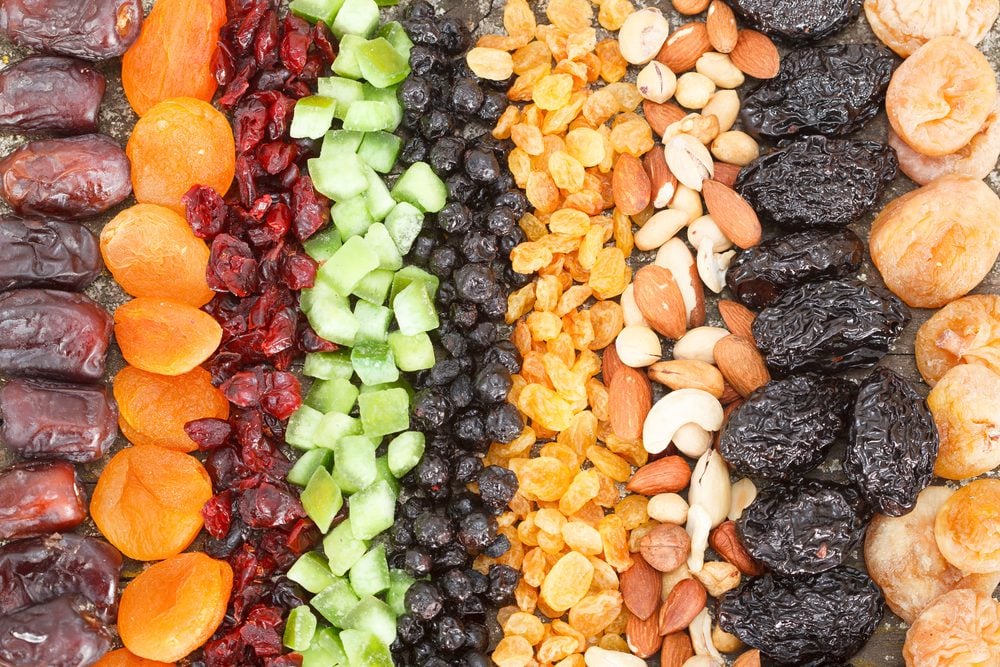
Dried fruit
“Dried fruit is really like eating candy,” says Stephen J. Stefanac, DDS, professor of oral medicine and periodontics at the University of Michigan School of Dentistry. “It has that stickiness and high sugar content.” That means that sugar gets stuck between your teeth—the perfect formula for cavities. Skip the dried variety and opt for fresh fruits instead.
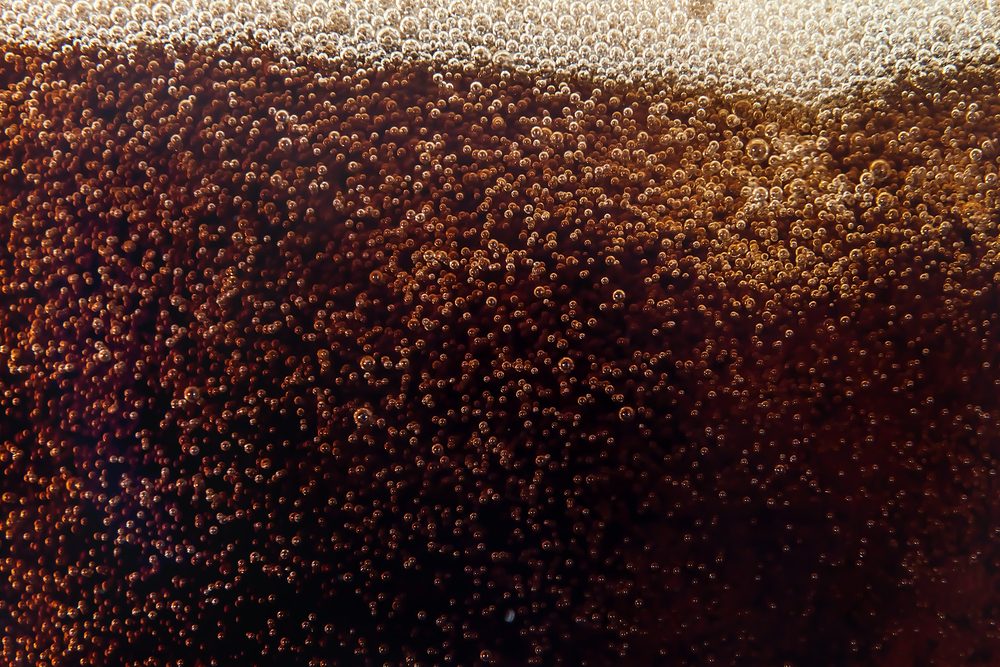
Soda
It probably comes as no surprise that soda is not great for your teeth. A 12-ounce can of soda has a whopping 39 grams of sugar—that’s almost 10 teaspoons! But that’s not the only problem. “It’s very acidic,” says Tricia Quartey, DDS, a dentist in Brooklyn, New York. “And acid can break down the enamel.” The worst is if you sip soda all day long, because it increases your teeth’s exposure to the sugar and acid.
Find out 25 ways sugar is making you sick.
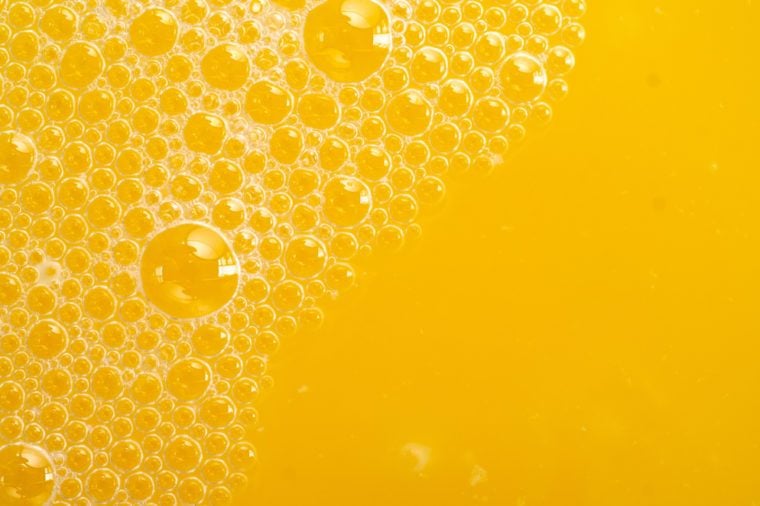
Juice
Like soda, bottled juice can be acidic and often contains added sugars, sometimes as much as 10 teaspoons per serving. That sugar feeds bacteria in your mouth that cause tooth decay. But at least one dentist likes a surprising alternative: apple juice. “There’s usually no added sugars in apple juice,” says Tyrone Rodriguez, DDS, board certified pediatric dentist in San Antonio, Texas. Dr. Rodriguez suggests watering down apple juice to decrease the natural sugar further or making other juices yourself at home.
Find out the flossing mistakes everyone makes.
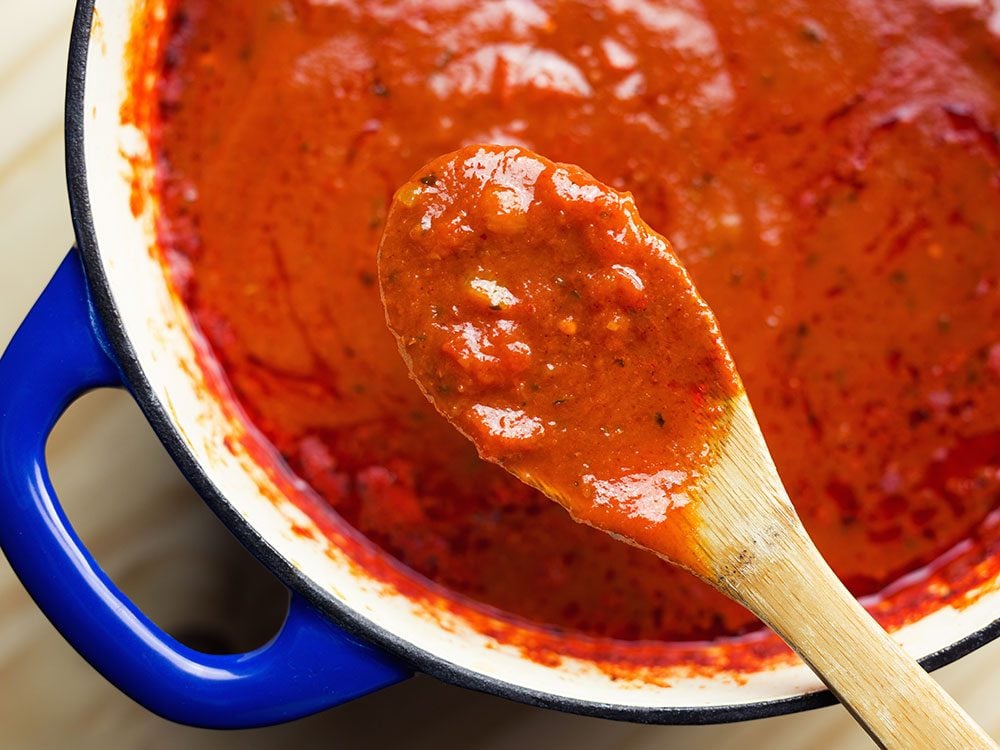
Pasta sauce
Tomatoes are healthy, but they’re also acidic: “Eating tomato sauce with spaghetti doubles the damage to enamel,” says Dr. Quartey. The acidic sauce can break down the enamel on teeth, and the carbs in pasta help feed cavity-causing bacteria. Dr. Quartey recommends serving pasta with cheese instead.
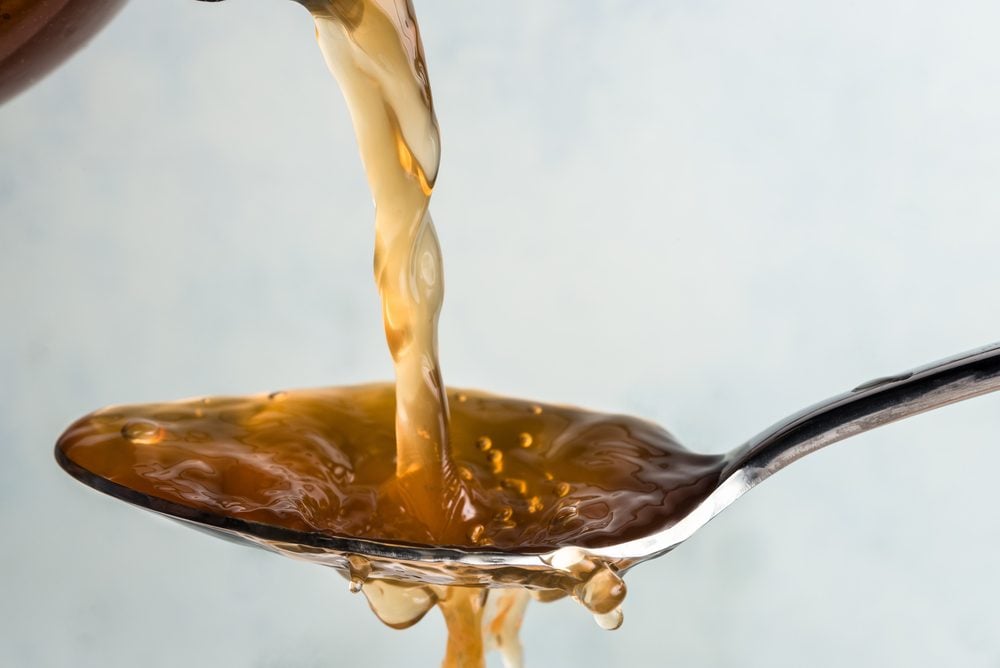
Apple cider vinegar
This vinegar has been touted for its detoxifying properties, but you might not realize that its high acidity can erode tooth enamel in a hurry. Two dentists we spoke with have seen an increase in people with damaged teeth from drinking apple cider vinegar. If that’s a part of your regimen, always dilute it with water, drink it in one sitting (preferably with a straw), and rinse well afterward.
Make sure you never do this when taking apple cider vinegar.
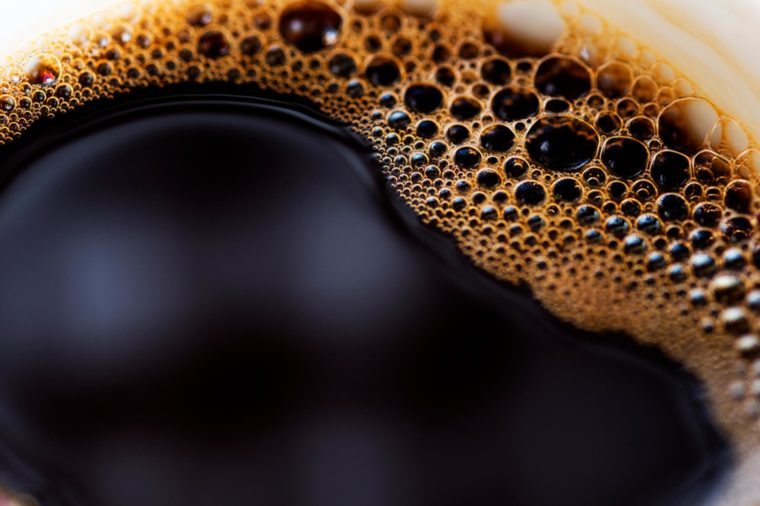
Coffee and tea
Coffee and tea may get you up and going, but they’re no friends to your teeth. Both are acidic and diuretic, which means they can dry out your mouth. “Saliva is nature’s buffering system to rinse everything,” Dr. Rodriguez explains. “When you run low, you’re more prone to cavities and gum disease.” And that frappé? It’s even worse because of all the added sugar. Good news: Swishing with water afterward will help protect your teeth.
Use these tips to protect your teeth from coffee stains.
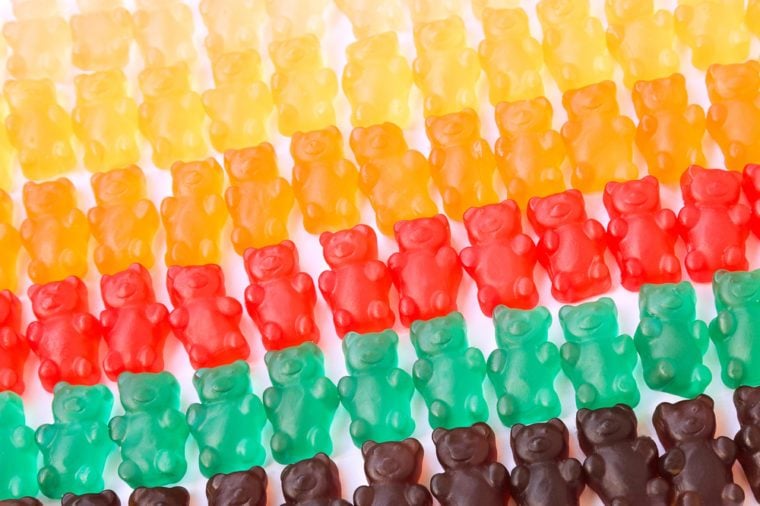
Gummy vitamins
Remember: Gummy vitamins or fibre supplements are still essentially a piece of candy. They contain sugar and are also squishy and sticky, which makes it easy for them to get stuck in your teeth and cause cavities. Protect your teeth by choosing vitamins you swallow, or at least chewables that crumble.
Here are more secrets Canadian dentists want you to know.
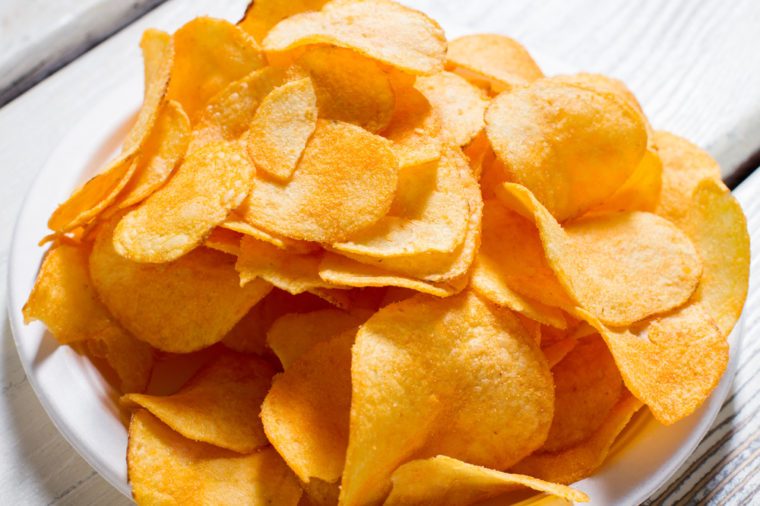
Flavoured chips
First, hard chips can cut your gums, and as refined carbs, they’re essentially food for mouth bacteria to feed on. But the flavourings, which are often acidic, act like sandpaper on your teeth, Dr. Rodriguez says. And the more extreme the flavouring, the worse it is. Try plain air-popped popcorn instead or, better yet, some nuts.
Find out the signs of disease your teeth can reveal.
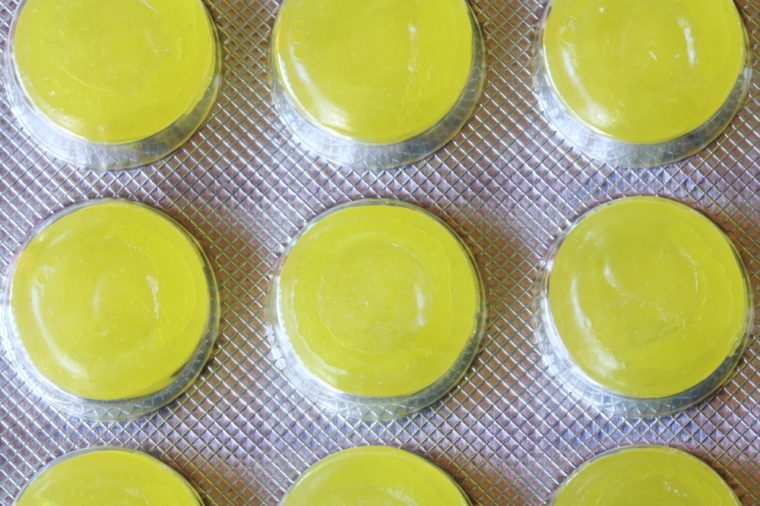
Cough drops
As with gummy vitamins, you might not classify cough drops as candy, but that’s what they are to your teeth. Dr. Stefanac remembers a patient who had a lot of tooth decay because she was treating lozenges like medicine: “She was sucking on them all day.”
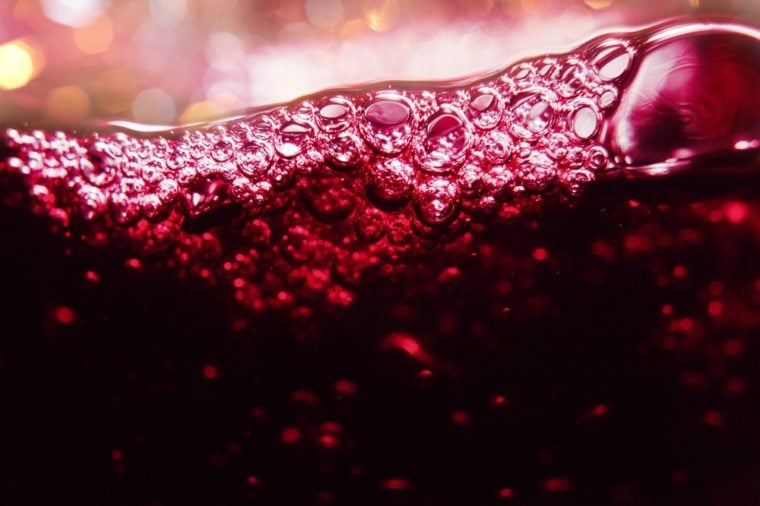
Alcohol
Beer, wine, hard liquor and cocktails can all do a number on your teeth—especially if you like to nurse your drink. Along with the carbs in beer that bacteria feed on, the carbonation makes it acidic, which also erodes tooth enamel. Wine could have more sugar than you think (a glass of sweet white can have up to eight grams), but it’s the sugary cocktails you really have to watch: Besides the sugar, drinks with higher alcohol content can dry out your mouth, making you more prone to cavities and gum disease.
Don’t miss these pro tips on how to choose the best toothbrush for you.
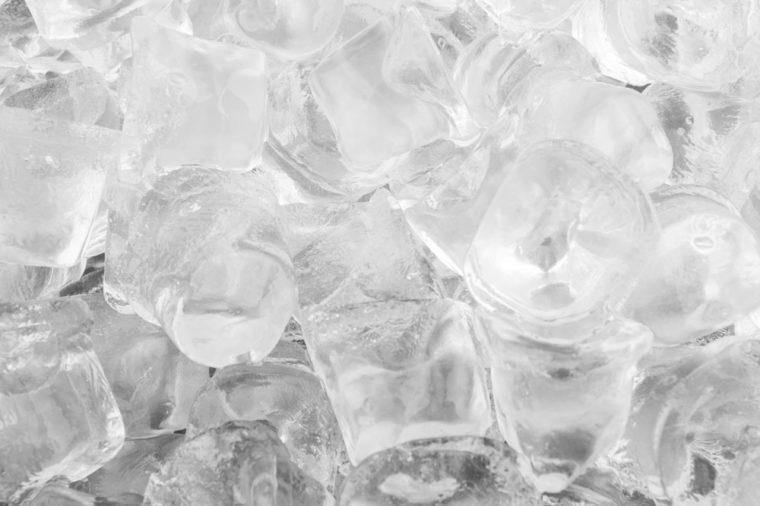
Ice
The hardness of ice is the culprit here: Chewing on ice can easily crack a tooth. “I see that a lot,” says Dr. Stefanac. “We often see it with people who have lots of fillings, which weakens the teeth. They bite on ice and snap off a portion of a tooth.” Time to kick the habit!
Never ignore these signs of a potential dental emergency.
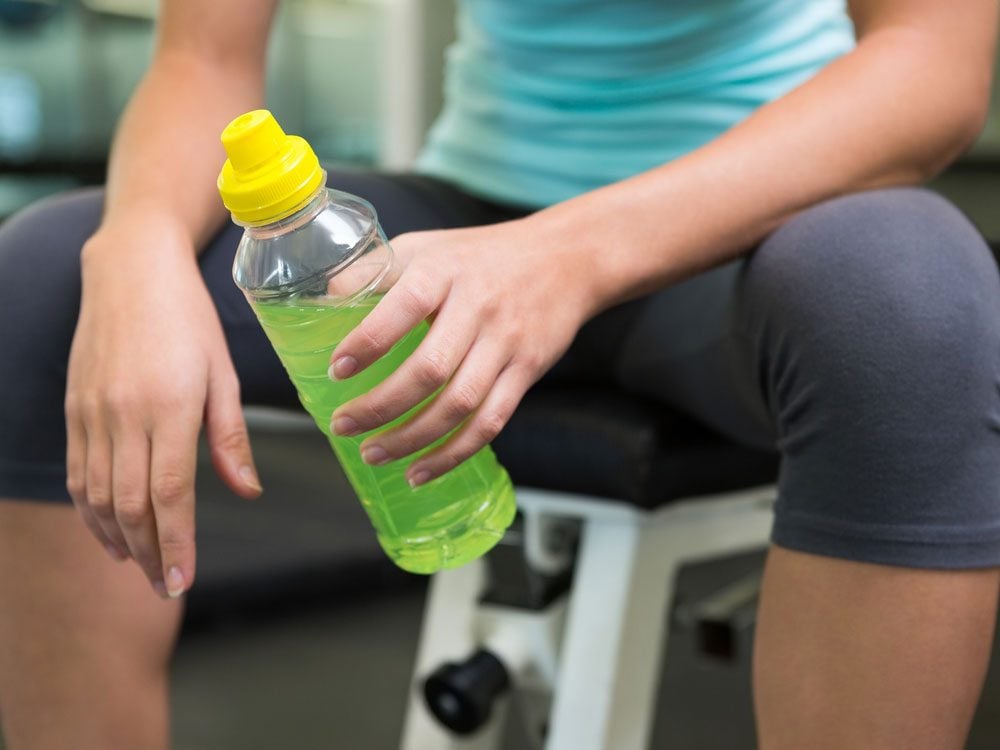
Energy and sports drinks
Despite their healthy-sounding names, energy and sports drinks are packed with sugar and acids, a double whammy to your teeth. What’s more, many of them contain a special sticky substance to keep the colouring evenly distributed in the drink. As a result, the sugar and acid stay on your teeth longer. Opt for plain water instead.
Here’s how much water you should be drinking to stay hydrated.
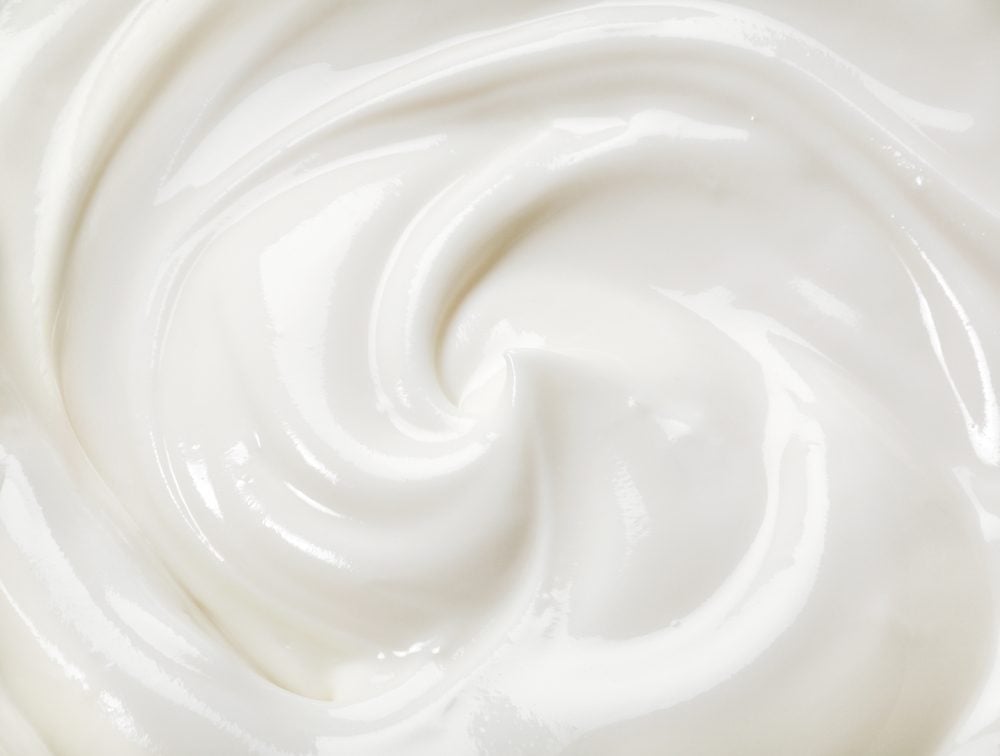
Yogurt
How can yogurt be bad for your teeth? If you have the plain kind, it’s not. After all, it contains probiotics and calcium, which are good for oral health. But many yogurts—even the Greek type—come with sweet fruit purees, adding a ton of sugar and acid to the mix. “You’re almost losing the benefits,” Dr. Rodriguez says. So add cut-up fresh fruit to plain yogurt instead.
Next, find out how long you should be brushing your teeth.